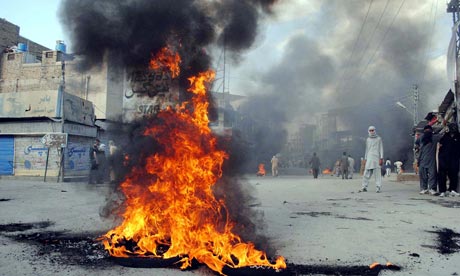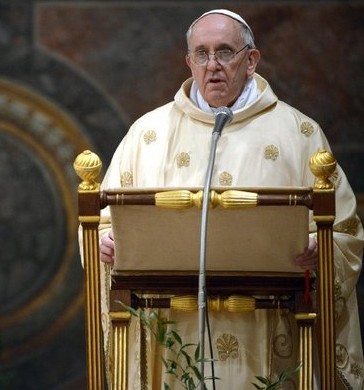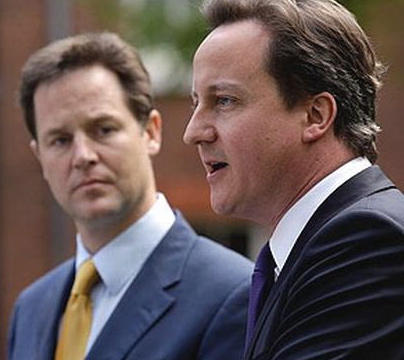
Divided we stand: using game theory to understand regional cooperation
Why do cooperative ventures between some countries work, and not others? Current literature identifies lack of common threats, base identities, and overlapping goals as dilemmas that make cooperation among certain sovereign states unlikely. Indeed, if cooperative ventures are viewed from a Darwin-Waltz perspective,[1] weak institutions, norms, and domestic regimes explain the difficulties countries face in collaborating. Adding to these traditional explanations, in this post I want to use game theory to introduce the concept of a ‘supervising agent’ to identify why regional integration may be unsustainable in the long run.

Index on Censorship student blogging competition
Index on Censorship is seeking entries for its student blogging competition. To enter, students should submit a 500-word blog post on the following topic: ‘What is one of the biggest challenges facing freedom of expression in the world today?’ This could cover a repressive regime, threats to digital freedom, religious clampdowns or attacks on media freedom, focusing on any region or country around the world. The competition is open to all first-year undergraduate students in the UK, and the winning entry will be determined by a panel of judges including the Index Chair. The winning entry will be published in the Index on Censorship magazine. This is a opportunity for talented student writers and activists to get professionally published and make contact …

Pakistan: A nation defined by religion yet being torn apart by it
Pakistan was born a paradox. Its partition from India was considered necessary to ensure a homeland for the Muslims of the Indian subcontinent. However, its founder, Muhammad Ali Jinnah, always believed that Pakistan should be a secular state, tolerant of minorities; a homeland for Muslims but not an Islamic state. Unfortunately, he died shortly after partition and the dream of a secular and peaceful Pakistan was stillborn. 66 years after the establishment of the nation, the religious factor underpinning Pakistan’s creation and statehood has now become the principal source of its greatest national tragedy.

The utility function of Celestine V and the election of Pope Francis
When Pope Benedict XVI resigned in February 2013, there was much scrabbling by journalists to establish when last a pope resigned voluntarily. After a bit, they came up with the correct answer. It was in 1294, when the elderly hermit Pietro of Murrone, who had been elected as Celestine V after a two-year deadlock, abruptly resigned after five months and went back to being a hermit, a life he evidently preferred. But Celestine V was remarkable for two things, of which his resignation was but one. The other was his enforcement of the conclave. That distant event has decisively shaped the procedure for electing popes. To see why, we need to understand a lesson from social choice that papal electors learnt the hard way: the trade-off between stability and decisiveness.
Launch of current issue of the St. Antony’s International Review (STAIR): “Power, the State and the Social Media Network”
The St Antony’s International Review (STAIR) is proud to announce the publication of its 16th issue, “Power, the State, and the Social Media Network”. The issue is available on IngentaConnect. The launch event will take place on 6 March at 6.30 pm in the Oxford Department for Politics and International Relations. In the themed section of this edition of STAIR five authors seek to shed light upon the contemporary relationship between power, the state and social media, perhaps the most pronounced and widely disseminated digital social technology the world has encountered. Supporting and affecting political movements from New York’s Zuccotti Park and Egypt’s Tahrir Square, “Facebook revolutions” and “Twitter revolutions” are conceived of as borne out of social media networks; they oscillate between the Charybdis of an anarchic freedom and the Scylla of surveilled repression, utilized by both citizens and the state. With such power, social media now holds the potential to empower and propagandize, secure and surveil, to create, and to destroy.

Social democracy must radicalise to survive
Social democracy seems perpetually at a crossroads. But today, more than a hundred years after the first of the parties affiliated to the Second International won a plurality in a parliamentary election (in Finland in 1907; Anderson, 1992, 307), social democrats may finally be running out of rope. All the main European social democratic parties are facing a crisis, registering at long last endlessly postponed questions about their fundamental purpose.

What Next for Britain’s Pro-Europeans?
Having, until now, benefited from the tacit support of the existing political elite, Britain’s pro-European lobby has had less incentive to create a formal political movement. However, if the anti-European jungle drums continue to beat louder, it seems only a matter of time before the pro-Europeans organise, perhaps in advance of the June 2014 European elections.

Countdown to First Czech Presidential Elections
UPDATE: In the final week, the Czech presidential race opened up. Jan Fischer performed poorly in the debates, while the Czech Republic’s aristocratic foreign minister, Karel Schwarzenberg, picked up support from two sources: those who disliked both Zeman and Fischer, and those from the centre-right who started to doubt Fischer’s viability in a run-off against Zeman.









